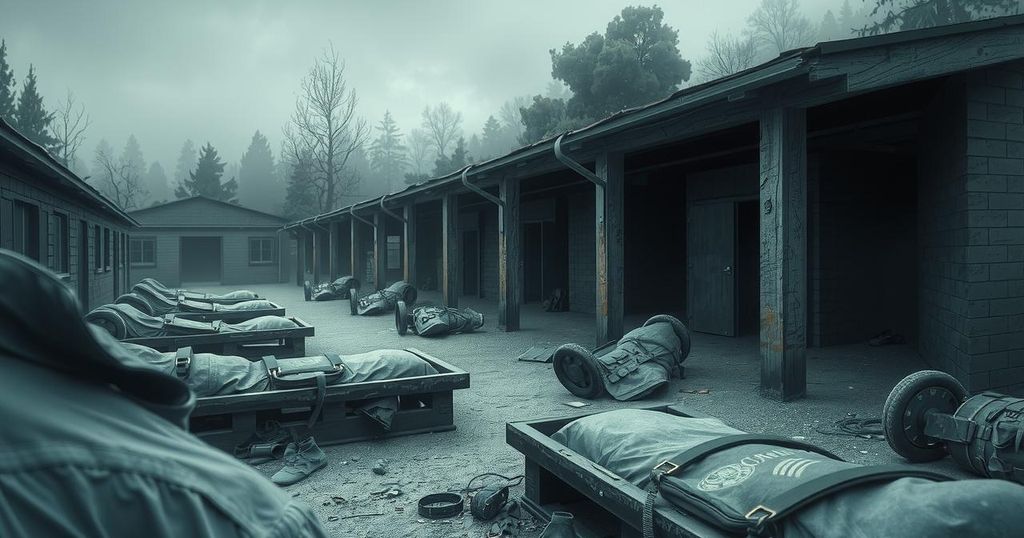Desertion Crisis: Cameroonian Soldiers Turning to Ukraine Conflict
The article discusses the significant problem of Cameroonian soldiers deserting to fight in Ukraine, which threatens military efficiency and national stability. The trend has intensified since Russia’s invasion of Ukraine, with soldiers drawn by higher wages and better prospects. The government has called for stringent measures to address desertion and improve soldiers’ conditions.
Cameroon is facing significant challenges due to soldiers deserting their positions to fight in the Ukraine war, a trend highlighted by Defence Minister Joseph Beti Assomo in a recent statement. This issue not only undermines the operational efficiency of the Cameroonian military but also threatens national stability, exacerbating existing security challenges from groups like Boko Haram and local rebel factions.
The trend of desertions in Cameroon began in the late 2010s, with soldiers leaving for lucrative opportunities in Dubai. Reports from 2018 indicated that hundreds of soldiers had deserted, prompting a temporary suspension of overseas missions. The ongoing conflict in Ukraine presents a new avenue for soldiers dissatisfied with their current conditions, further straining military resources.
Unlike previous desertion cases, the current wave involves soldiers abandoning their posts to enter a high-intensity combat environment. Deserters are attracted to Russia’s recruitment efforts, which promise salaries significantly higher than those available within Cameroon. Many soldiers reportedly earn between XAF 1.2 million ($1,976) to XAF 2 million ($3,294) per month while fighting for Russia while the average Cameroonian soldier receives a mere XAF 51,880 ($85) on basic salary.
The professionalisation of Cameroon’s military since 2001 has shifted soldiers’ motivations from loyalty to economic necessity, altering the traditional perceptions of military service. Many soldiers now view their roles as a means to sustain their livelihoods rather than a lifelong commitment, resulting in a skilled yet transient military workforce.
Furthermore, the heavy workloads and increased risks faced by soldiers in Cameroon have prompted many to reconsider their positions. Desertions have contributed to a broader trend of migration among professionals in Cameroon, including healthcare workers and teachers, posing additional challenges for educational and health sectors.
The Cameroonian authorities are particularly concerned about the implications of returning deserters who may use their combat experience against national interests. In response, Minister Assomo has advocated for stricter regulations and oversight regarding military personnel absenteeism.
To combat these issues, Cameroon must also focus on improving the conditions for active soldiers, including adjusting salary structures and enhancing support systems such as housing and medical care. Developing strategies aimed at increasing loyalty among soldiers is critical to strengthen retention amid pressing military demands.
The desertion of soldiers from Cameroon to join the conflict in Ukraine presents serious concerns for national security and military operational capacity. The financial incentives, combined with an increasingly precarious military environment, have driven this troubling trend. To navigate these challenges, the Cameroonian government must implement comprehensive reforms, including better conditions for military personnel and stricter regulations regarding desertion. Addressing these issues is essential for restoring military cohesion and securing national stability.
Original Source: www.premiumtimesng.com




Post Comment